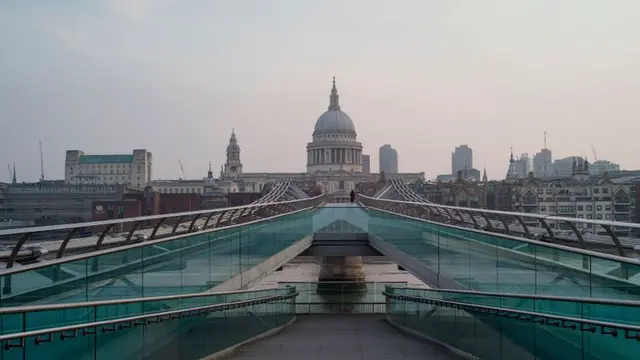A question is looming: when and how to lift the lockdown?
The politicians say they're
guided by the scientific advice
. The scientists say it's a decision for the politicians. Who, then, should we look to for answers?
Parliament's Science and Technology Committee put this question to a group of scientists on Thursday afternoon. Perhaps, when they began, they hoped to find hard truths about the situation.
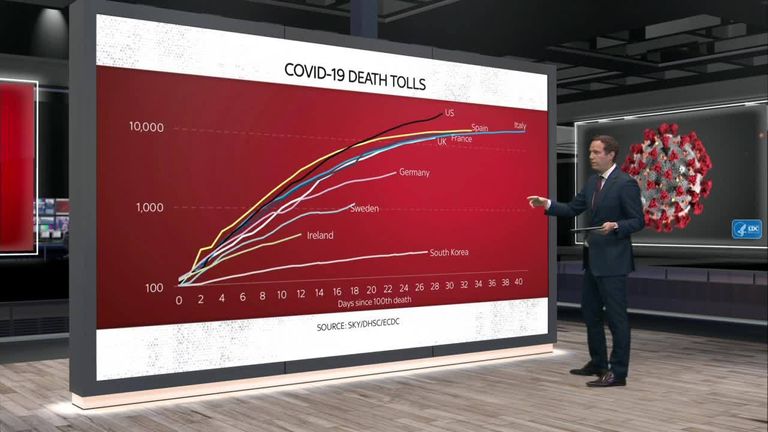
Why has the UK lockdown been extended?
If they did, they will have been disappointed.
The only area in which there was unequivocal consensus was in the conditions necessary to lift the lockdown. After that, the clarity vanished.
First, those conditions. The most important is also the most obvious: the epidemic needs to be under control.
In technical terms, this means bringing the reproductive rate below one, so an infected individual only infects one other person on average.
Two scientists interviewed by the committee, Professor Graham Medley and Dr James Rubin, said the data from hospitalisations and deaths suggested that had happened, indicating that the lockdown had broken the chains of transmission.
The government's chief scientific adviser, Sir Patrick Vallance, confirmed this finding in the news briefing afterwards, with the caveat that it was probably only true in the community - not, say, in care settings or some hospitals.
**:: Listen to the Daily podcast on **
Apple Podcasts
**, Google Podcasts
, Spotify
, Spreaker
**
So why isn't the lockdown over? Partly because we need to be sure this trend continues. Partly because the government is still building capacity to understand the epidemic, by increasing the number of tests it can do, and improving the tests so they can effectively track the outbreak.
Professor Chris Whitty said the government was hoping to have a "crude ranging shot" from blood tests soon, but that is still being developed, and will need to be improved in order to give a true picture.
But in large measure the difficulty is simply the strength of the virus. Once the lockdown is lifted, there's a real danger it will just come roaring back.
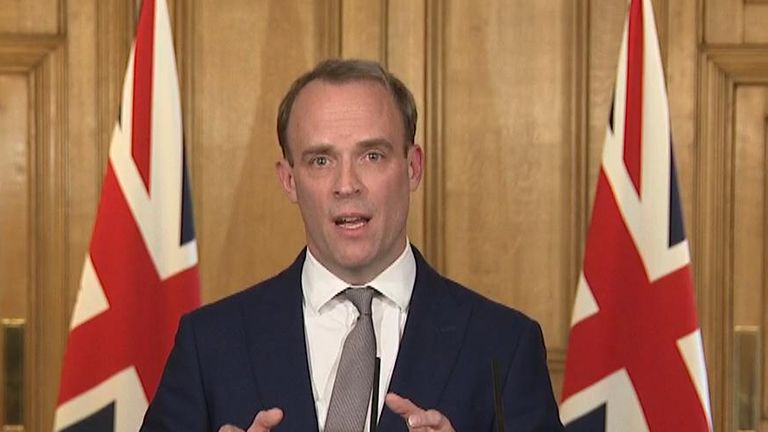
Relaxing UK lockdown would risk lives - Raab
The question isn't whether to lift the lockdown, but how - and here the science can offer guidance, but not firm answers.
Take, for instance, school closures. In the early stages of the epidemic, the government's scientific advisers said shutting schools wouldn't have much effect on slowing the spread of the virus.
This was supported both by historical and contemporary research. A study in March led by University College London found that the evidence to support the closure of schools was "very weak".
Not everyone agrees. Professor Neil Ferguson, one of the key epidemiologists advising the government, has argued that school closures combined with "intense social distancing" can break links between different households.
**:: Listen to Coronavirus: In This Together on **
Apple Podcasts
**, Spotify
, or Spreaker
**
But anyone wishing to keep schools open in March would have had plenty of scientific support - not to mention huge economic support, as opening schools would allow parents time and space to work from home.
So why were they closed? Simply put, because it seemed impossible not to. There was widespread public demand for it, not least from teachers and catering staff. It avoided any risk.
By contrast, airports are still open, without routine testing of the 15,000 passengers arriving in the UK each day. There are some exceptions - a US woman was turned away recently because her visit was deemed non essential - but on the whole the UK's borders remain open, in contrast to the rest of the world's.
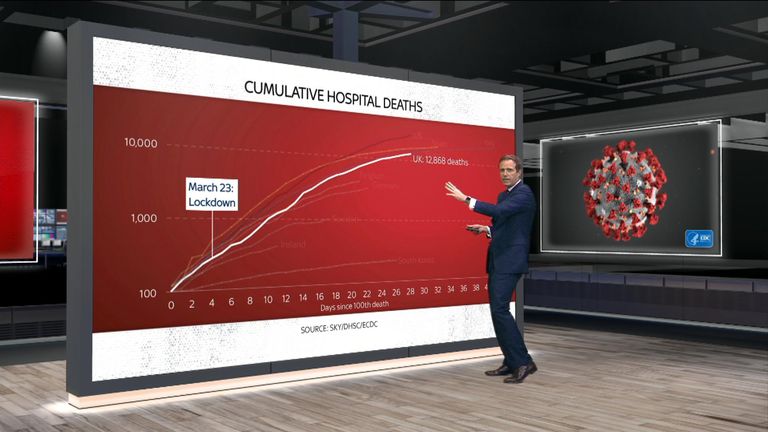
Has the lockdown flattened UK deaths?
The government says it is following the science, but in this case there is little of it. Public Health England has cited a study that concluded that travel restrictions would make "an extremely limited contribution" to restricting an epidemic. But that study was from 2014. And it was about influenza.
In the face of this kind of uncertainty, what should the government do? It seems to me that it did what it was elected to do, and followed the people.
Schools staying open prompted a widespread outcry. Airports did not - at least not yet. That is ultimately what made the difference.
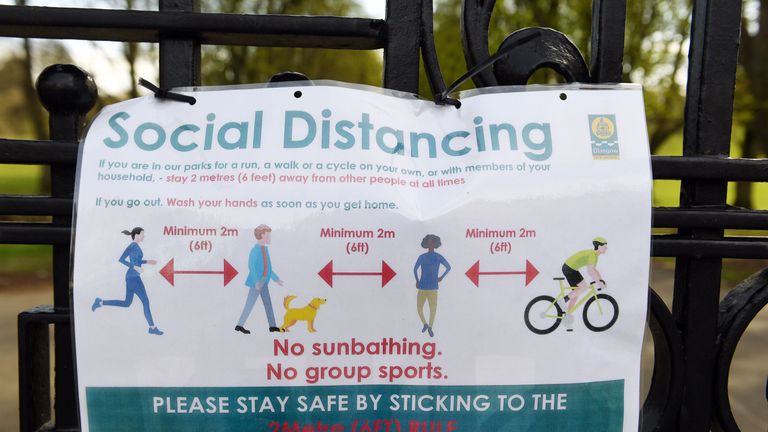
Image:The public is often left out of decision making
This might sound like I'm accusing the government of not listening to the science. Far from it. Judging what is publicly acceptable is essential to making sure this lockdown saves lives - and that is the key skill of politicians, not of scientists.
It might seem a strange thing to say, given the restrictions we are struggling under, but the decision-maker that always gets left out of the scientists or politicians debate is us - the public.
We don't have a single voice, but, in aggregate, we play a far bigger role than either of them.
 简体中文
简体中文

